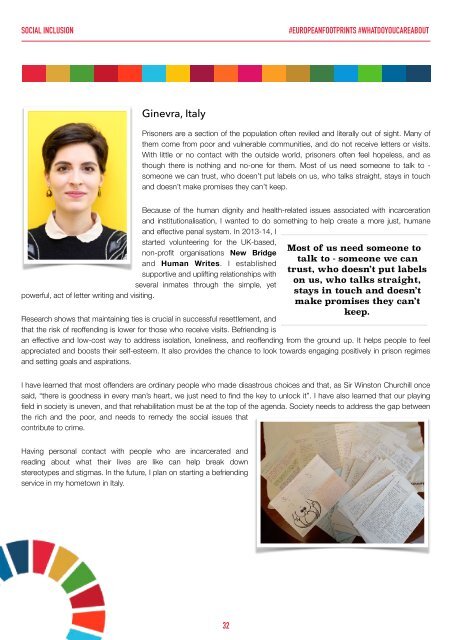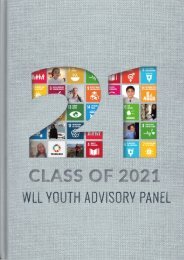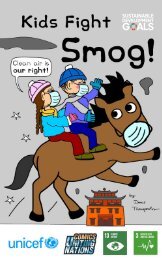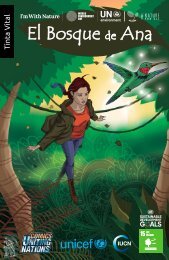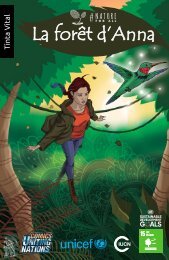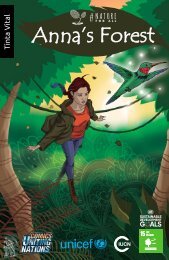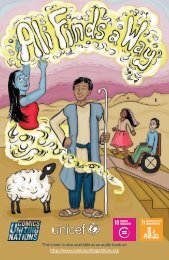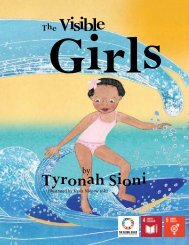Stories For A Sustainable Future
A teaching tool to be used in classrooms, addressing 13-18 year old students created by European Footprints Initiative. The storybook can be used as a whole, as it presents a general introduction on the SDGs, as well as thematically.
A teaching tool to be used in classrooms, addressing 13-18 year old students created by European Footprints Initiative. The storybook can be used as a whole, as it presents a general introduction on the SDGs, as well as thematically.
You also want an ePaper? Increase the reach of your titles
YUMPU automatically turns print PDFs into web optimized ePapers that Google loves.
SOCIAL INCLUSION<br />
#EUROPEANFOOTPRINTS #WHATDOYOUCAREABOUT<br />
Ginevra, Italy<br />
Prisoners are a section of the population often reviled and literally out of sight. Many of<br />
them come from poor and vulnerable communities, and do not receive letters or visits.<br />
With little or no contact with the outside world, prisoners often feel hopeless, and as<br />
though there is nothing and no-one for them. Most of us need someone to talk to -<br />
someone we can trust, who doesn’t put labels on us, who talks straight, stays in touch<br />
and doesn’t make promises they can’t keep.<br />
Because of the human dignity and health-related issues associated with incarceration<br />
and institutionalisation, I wanted to do something to help create a more just, humane<br />
and effective penal system. In 2013-14, I<br />
started volunteering for the UK-based,<br />
non-profit organisations New Bridge<br />
and Human Writes. I established<br />
supportive and uplifting relationships with<br />
several inmates through the simple, yet<br />
powerful, act of letter writing and visiting.<br />
Most of us need someone to<br />
talk to - someone we can<br />
trust, who doesn’t put labels<br />
on us, who talks straight,<br />
stays in touch and doesn’t<br />
make promises they can’t<br />
keep.<br />
Research shows that maintaining ties is crucial in successful resettlement, and<br />
that the risk of reoffending is lower for those who receive visits. Befriending is<br />
an effective and low-cost way to address isolation, loneliness, and reoffending from the ground up. It helps people to feel<br />
appreciated and boosts their self-esteem. It also provides the chance to look towards engaging positively in prison regimes<br />
and setting goals and aspirations.<br />
I have learned that most offenders are ordinary people who made disastrous choices and that, as Sir Winston Churchill once<br />
said, “there is goodness in every man’s heart, we just need to find the key to unlock it”. I have also learned that our playing<br />
field in society is uneven, and that rehabilitation must be at the top of the agenda. Society needs to address the gap between<br />
the rich and the poor, and needs to remedy the social issues that<br />
contribute to crime.<br />
Having personal contact with people who are incarcerated and<br />
reading about what their lives are like can help break down<br />
stereotypes and stigmas. In the future, I plan on starting a befriending<br />
service in my hometown in Italy.<br />
32


